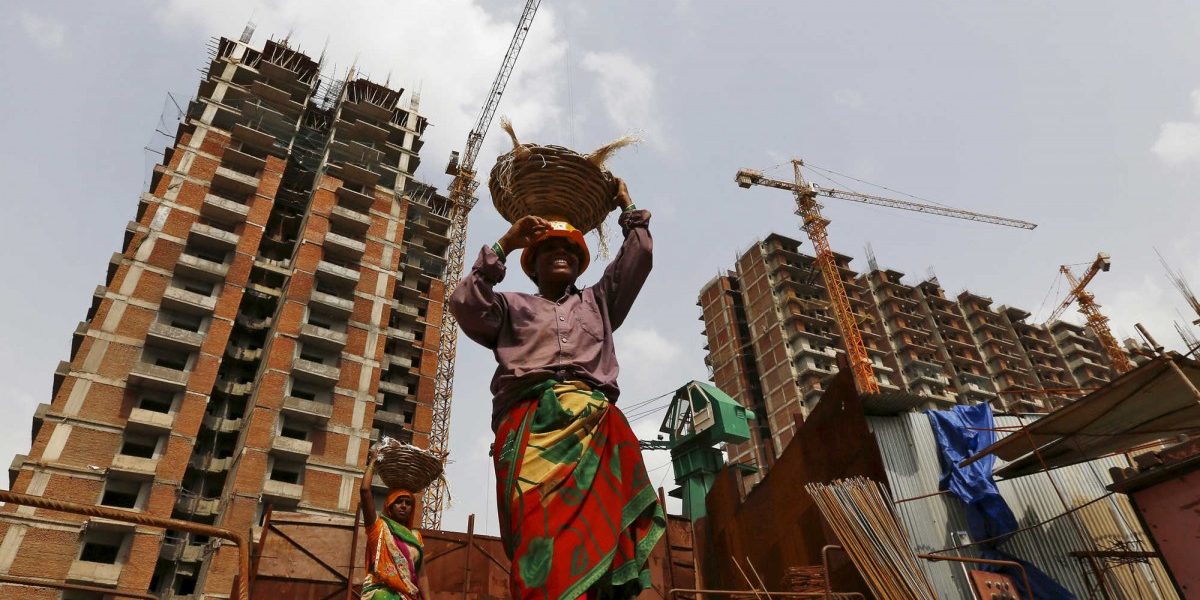New Delhi: A survey by the National Campaign Committee for Central Legislation of Construction Labour has found that only 21.3% of Delhi’s informal workers have received their first dose of the COVID-19 vaccine.It has been observed that the low vaccination rate among informal workers, who mostly constitute construction and domestic workers, is attributed to vaccine hesitancy and lack of digital means to obtain information regarding the jab and booking a slot for the same.
The survey is based on responses of 1,034 informal sector workers, and of which 968 responses have been considered for the analysis. The survey was carried out in Delhi during May 22-24, 22 days after vaccines were open to the public in the 18 to 44 age group, through pre-booking of slots on digital platforms such as CoWin, Aarogya Setu and Umang.
Out of the 968 respondents, 500 are men and 468 are women. Of the total, 599 respondents are in the age group of 18-45, of whom 535 persons have not been vaccinated thus far, a whopping 89.3%. Out of 332 respondents in the age group of 45 to 60, 208 (62.7%) haven’t received the jab yet. Only 18 (51.4%) respondents out of 35 above 60 years old have received their first dose of the COVID-19 vaccine. All in all, only 206 of 968 people (21.3%) have received their first dose.
According to the National Campaign Committee for Central Legislation of Construction Labour, the vaccination rates in this sample group of wage workers have been significantly lower than the vaccination rates across all age groups in Delhi at large. Most respondents (70%) admitted that none in their families in any age groups had received their first dose, the highest majority being the 18-44 age group. Of the 968 respondents, 820 said their family members in the 18-44 age group did not receive the first dose, 546 said this for the age group 45-60, and 375 for the 60 plus age group.
Among the 968 respondents, 40% said that they are apprehensive about vaccines, because of their “adverse effects” – news which they heard from their immediate circles, neighbours or rumours. A few respondents said that they are apprehensive of the vaccines because they might lose earnings for the days they fall sick after getting a shot.
On the other hand, 54% said that they are unaware of the process of getting vaccinated. Despite advertisements by the government, about 46% of respondents said that they are unaware of the three digital platforms that allow one to book a slot for vaccines.
An overwhelming majority (72%) disclosed that they did not know how to operate the digital platforms, despite having heard that they should register for slot online.
Many of the respondents (60.2%), even if they had access to a mobile phone, stated that they do not have a valid internet connection. Besides that, only a small minority (16%) said that they were financially in a position to arrange for Rs 150-450 per family member for vaccinations if the government decided to stall the free availability of vaccines.
According to a report released based on the survey: “From the perspective of the worker, there is not a single argument that could be made in favour of the current mechanism. The deliberate policy to allow access to vaccine appointments only through the internet is essentially rolling out the red carpet for the privileged, at the cost of the poor.”
The report concluded by suggesting a number of policy changes, some of which include:
- Reconsider restricting access to vaccine slots through internet-based digital platforms,
- Prioritise the vaccination drive amongst the poor who work in the informal sector, who couldn’t socially distance, or afford medical aid,
- Reserve Saturdays for immunising daily-wage workers,
- Create awareness within communities to reduce hesitancy, and
- Formulate schemes to provide monetary relief for the loss of wages suffered, which, at the least cover registered building workers and registered unorganised sector workers.




























































































